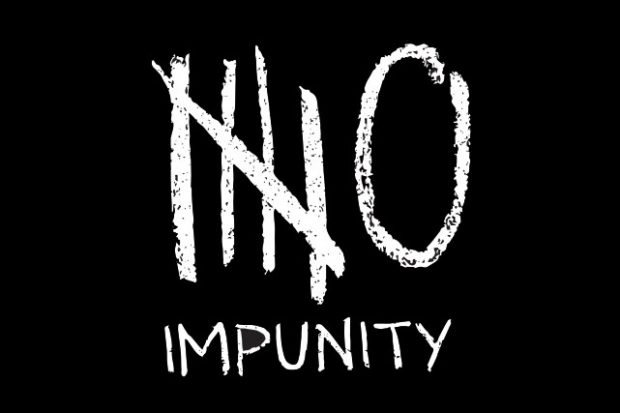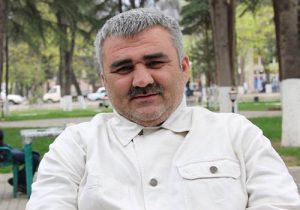4 Jan 2018 | Media Freedom, media freedom featured, News, United Kingdom
[vc_row][vc_column][vc_single_image image=”97191″ img_size=”full” alignment=”center”][vc_column_text]“News is something which somebody wants suppressed: all the rest is advertising.”
Variations on this quote, originally attributed to William Randolph Hearst, have echoed around newsrooms for decades, with advertising and editorial kept separate. Nowadays, though, the line is becoming more blurred for the UK’s regional media.
And it is driving journalists away from the jobs they love. One former local paper editor told Index she bowed out after commercial influence became the last straw.
“The last 10 years have seen increasing pressure from commercial departments to not use, or minimise, any story which has the potential to upset an advertiser – or even a potential advertiser,” she said. “While working as an editor I was told, in no uncertain terms, we were not to run a court story involving an advertiser breaching health and safety legislation. And that is just one example.
“My instincts were to fight every inch of the way, but the reality was that the dice were loaded in favour of those bringing in revenue, the ad team, not those irritating journalists who believed in printing news, whatever it was and whoever it involved.”
An increasing number of media CEOs have commercial roots rather than editorial backgrounds, with publishers sometimes accused of arguing that commercial needs can override journalistic integrity because advertisers pay the wages.
Print circulation is falling – as is advertising revenue. Enders Analysis predicts that by 2019, the UK newspaper industry’s revenue will be nearly £1bn a year less than in 2011, and eMarketer’s latest UK media ad-spending forecast predicted newspapers would see their income fall by 9% in 2017.
Regional papers have a smaller pool of advertisers to draw on than their national competitors, so commercial directors are keen to court businesses in the hope they may become advertisers, or to keep their budgets on par with previous years.
Reporters complain that they spend too much time rehashing press releases with little news value, and sub-editors regularly come across “stories” on commercial events with instructions not to edit them. Often, a paid-for supplement will follow, linked to an agreement for editorial coverage.
Ian Murray, executive director of the Society of Editors, says this closer relationship is important but needs to be handled with care.
“Editors left their ivory towers a few years ago now, and any editor or news editor who doesn’t understand that the continued existence of their publication is tied to its commercial success won’t last long in the job,” he said. “But whereas it is acceptable for an editor to agree to, say, a new section on a topic that will attract or support advertising, it remains their role if not their duty to ensure commercial interests do not affect genuine news reporting.”
This is a tightrope Nigel Pickover has negotiated in his four decades in the regional press. The former editor of the Ipswich Star and the Eastern Daily Press believes editorial staff need a sixth sense regarding potentially undue influence.
“If there is a newsroom campaign or a royal wedding supplement, it’s entirely appropriate to link with colleagues to see if there are commercial opportunities. Producing newspapers and websites is an expensive business,” he said.
“The biggest danger to me – in a time of tight resources and open pages – is clever PR firms delivering well-written copy, pictures and even video into the editorial system. Again, these stories must pass muster and not be used as space fillers if they are just free puffs.”
Many PR companies, aware of the muddying of the waters, see benefits for all parties.
Maw Communications has clients including GoCompare, DPD and Virgin Money. Founder Gordon Maw says it is now common to have editorial coverage, traditional adverts, sponsorship, online links and inclusion in more general features in one managed campaign rather than dealing with separate departments.
“As amazing as your story or ad is, there’s a massive chance people will miss it. But with this sharing of media, everything can be done as mini campaigns – it can go everywhere,” he said. “It’s still about the story and the message but it works in different ways.”
But while some newsdesks are instructed to blur the boundaries, Iliffe’s new Bishop’s Stortford Independent sets firm limits. News editor Sinead Corr’s brief is to provide genuine local news which inspires confidence in both readers and advertisers.
“We are trying to be independent, and you can’t be that if you are in someone’s pocket,” she said. “Our ad reps sell on the quality of our editorial content. There are no mates’ rates, no puff promises.”
She says advertisers believe too much cross-contamination can damage their brands. “People aren’t falling for it… It’s the whole ethos of trust. Adverts are placed in a context where they have credibility by association.”
But what happens if advertisers do try to call the shots? They may demand inclusion in a story or threaten to withdraw advertising if an adverse story is printed.
This is where editors have to be strong, fighting their corner if needs be and employing that “sixth sense”, says Pickover.
It is this approach which will, ultimately, benefit both commercial and editorial sides, adds Murray.
“In my experience, and through anecdotal evidence from today’s editors, they remain committed to standing up for editorial independence and integrity. Management also, I believe, understand that a publication’s integrity with both readers and then advertisers will not survive the loss of real editorial standards.”
This is good news, but it still rings hollow in the ears of journalists such as the former weekly editor, who spoke to Index, who believes the daily struggle is still real – especially for smaller publications.
“I am sure there are papers out there which take no prisoners and run stories unfettered by the chains of the ad team – and I salute them. But equally, there are also plenty of stifled editorial teams being bent by the commercial will of the ad teams – be it not running a story altogether, or over-writing some PR puff to a page lead to please an advertiser.”[/vc_column_text][/vc_column][/vc_row][vc_row][vc_column][vc_custom_heading text=”Survey: How free is our press?” use_theme_fonts=”yes” link=”url:https%3A%2F%2Fwww.indexoncensorship.org%2F2017%2F12%2Fsurvey-free-press%2F|title:Take%20our%20survey||”][vc_separator color=”black”][vc_row_inner][vc_column_inner width=”1/4″][vc_icon icon_fontawesome=”fa fa-pencil-square-o” color=”black” background_style=”rounded” size=”xl” align=”right”][/vc_column_inner][vc_column_inner width=”3/4″][vc_column_text]
This survey aims to take a snapshot of how financial pressures are affecting news reporting. The openMedia project will use this information to analyse how money shapes what gets reported – and what doesn’t – and to advocate for better protections and freedoms for journalists who have important stories to tell.
More information[/vc_column_text][/vc_column_inner][/vc_row_inner][vc_separator color=”black”][vc_row_inner][vc_column_inner width=”1/2″][vc_single_image image=”81193″ img_size=”full” alignment=”center” onclick=”custom_link” link=”https://www.indexoncensorship.org/2017/12/jean-paul-marthoz-commercial-interference-european-media/”][/vc_column_inner][vc_column_inner width=”1/2″][vc_column_text]
Commercial pressures on the media? Anti-establishment critics have a ready-made answer: of course, journalists are hostage to the whims of corporate owners, advertisers and sponsors. Of course, they cannot independently cover issues which these powers consider “inconvenient”.[/vc_column_text][/vc_column_inner][/vc_row_inner][vc_separator color=”black”][vc_row_inner][vc_column_inner width=”1/2″][vc_single_image image=”96949″ img_size=”full” alignment=”center” onclick=”custom_link” link=”https://www.opendemocracy.net/openmedia/mary-fitzgerald/welcome-to-openmedia”][/vc_column_inner][vc_column_inner width=”1/2″][vc_column_text]
Forget fake news. Money can distort media far more disturbingly – through advertorials, and through buying silence. Here’s what we’re going to do about it.
This article is also available in Dutch | French | German | Hungarian | Italian |
Serbian | Spanish| Russian[/vc_column_text][/vc_column_inner][/vc_row_inner][vc_separator color=”black”][/vc_column][/vc_row][vc_row][vc_column][vc_custom_heading text=”Don’t lose your voice. Stay informed.” use_theme_fonts=”yes”][vc_separator color=”black”][vc_row_inner][vc_column_inner width=”1/2″][vc_column_text]Index on Censorship is a nonprofit that campaigns for and defends free expression worldwide. We publish work by censored writers and artists, promote debate, and monitor threats to free speech. We believe that everyone should be free to express themselves without fear of harm or persecution – no matter what their views.
Join our mailing list (or follow us on Twitter or Facebook) and we’ll send you our weekly newsletter about our activities defending free speech. We won’t share your personal information with anyone outside Index.[/vc_column_text][/vc_column_inner][vc_column_inner width=”1/2″][gravityform id=”20″ title=”false” description=”false” ajax=”false”][/vc_column_inner][/vc_row_inner][vc_separator color=”black”][/vc_column][/vc_row][vc_row][vc_column][vc_basic_grid post_type=”post” max_items=”12″ style=”load-more” items_per_page=”4″ element_width=”6″ grid_id=”vc_gid:1515055423699-6d3c86d3-086a-2″ taxonomies=”8996″][/vc_column][/vc_row]
5 Dec 2017 | Europe and Central Asia, Mapping Media Freedom, Media Freedom, media freedom featured, Montenegro, News
[vc_row][vc_column][vc_single_image image=”96761″ img_size=”full” alignment=”center”][vc_column_text]This article was originally published by Osservatorio Balcani e Caucaso.
Read in Italian.
Jovo Martinović is a freelance investigative journalist in Montenegro, who has worked for a number of international outlets — National Public Radio, BBC, VICE, CBS, Canal Plus, The Economist, TIME, Global Post, BIRN — and is known for his reports on organised crime in Europe and war criminals in the Balkans. His investigations brought him in close contact with persons involved in drug-trafficking as well as members of the Pink Panthers, an international network of jewellery thieves.
In October 2015, he was arrested after being charged with drug trafficking and participation in a criminal organisation. The prosecution by the Montenegrin state – as well as the long, unjustified pre-trial detention – was highly criticised by international media freedom and human rights organisations. Martinović proclaimed his innocence and – as a well-known, respected investigative journalist – could convincingly state that the contacts were part of his investigation.
Martinović was released at the beginning of 2017 after 14 months in prison, but is still on trial, facing up to ten years in prison. Francesco Martino, a correspondent for Osservatorio Balcani e Caucaso, met him in Pristina, during a conference organised by Le Courrier des Balkans.
Do you see your case as unique, or as part of a general strategy to undermine freedom of the press in Montenegro?
In Montenegro, in these last years, several cases were registered of physical attacks against journalists, and in 2013 the premises of the leading independent newspaper Vijesti were bombed. So, yes, the media and journalists have been under pressure in Montenegro. My personal case was somehow different, probably because I have always worked for the Western media. The approach taken against me was definitely unique: no other journalist in Montenegro has spent fourteen and a half months in prison. Cases like mine have been registered in countries like Russia, Turkey, and Venezuela, where last year investigative journalist Braulio Jatar was accused of money laundering and imprisoned after appearing as an opponent of Venezuelan president Nicolás Maduro.
In the past, were you ever “warned” to stop your investigations by representatives of the political power?
I was warned – to put it that way – several times in the past, when I worked in some investigations that were not particularly well-received, to say so. Sometimes, I was even suspected for reports which appeared in the foreign media that I had nothing to do with.
How were you treated during your long imprisonment?
I was treated fairly during my stay in prison. While filming a documentary film on the main defendant in my case, Dusko Martinović, I had been several times in prison to interview him, so they already knew me there. I enjoyed a fair treatment, and I didn’t receive any pressure from the prison staff while being detained.
How do you explain your incarceration? Which are the reasons for such a long time behind bars?
When I was arrested, I was working on a documentary film for the French channel Canal Plus about smuggling of weapons from the Balkans – Albania and Bosnia and Herzegovina in particular – into France, weapons that eventually ended up in the hands of terrorist groups. Back then, I was working on the Bosnian case and filming in Serbia, so our investigation wasn’t linked to Montenegro at all. I find it difficult to link it with my incarceration unless we’re speaking of pure communist paranoia on the part of someone in power. I rather believe that they used the documentary as an opportunity for pay-back for my non-compliance and “insubordination” in earlier cases.
You have always worked for international media rather than for local ones. Do you think this puts you in a more delicate position?
Yes, sure. Balkan governments are much more scared and worried about what big international media report about them than the local ones. So, working for international media puts you under a stronger pressure, because if governments or the security structures aren’t happy about the way a certain matter has been reported, the easiest way to retaliate is to put the blame on the local stringer.
What was the reaction of journalist’s organisations and the Montenegrin media to your arrest? Did you receive tangible solidarity?
Initially, local media picked the news from international organisations that wrote to the Montenegrin government on my behalf. In the beginning, the reaction was quite humble, maybe because I wasn’t really perceived as part of the Montenegro media community since, as I already stressed, I never worked for the local media. But when my incarceration was prolonged, Montenegrin independent media started to focus on my case and were very supportive. On the other hand, though, the state-controlled media basically ignored my story.
Do you think journalists and media in Montenegro are eager to support each other in defending freedom of speech in the country?
Montenegro is a small country with a small media market, so petty rivalries among journalists are quite common. Nevertheless, when it comes to serious matters like protecting media freedom, I think solidarity and mutual support prevail.
Is there any real room for investigative journalism in Montenegro? Are there concrete opportunities to denounce corruption, links between political power and organised crime, and effective channels to reach the public?
Sure, freedom of expression does exist and in these past years, some local media have done an extremely good job. There have been several good stories, scoops, which haven’t produced any big change in society yet. Of course, as in many other countries in transition, opportunities for good journalism in Montenegro are accompanied by risks and challenges. What’s worse, though, is that good investigations usually have no impact, even if they’re substantiated by facts and documents. In the Balkans, and particularly in such a small country as Montenegro, you don’t have the same public response to news criticising the government as in Western Europe. I think this is partly explained by a weaker democratic tradition.
Montenegro is currently an EU candidate state: do you think the European monitoring linked with accession negotiations is helping to improve media freedom in the country?
It’s difficult to give a clear-cut answer, but I believe the EU is generally playing a positive role. Endorsing a Western system of values in the framework of the EU accession process is relatively easy, while it’s way more challenging to actually implement those values, transforming Balkan countries into viable realms of rule-of-law.
This publication has been produced within the project European Centre for Press and Media Freedom, co-funded by the European Commission. The contents of this publication are the sole responsibility of Osservatorio Balcani e Caucaso and its partners and can in no way be taken to reflect the views of the European Union. The project’s page[/vc_column_text][/vc_column][/vc_row][vc_row][vc_column][vc_basic_grid post_type=”post” max_items=”12″ style=”load-more” items_per_page=”4″ element_width=”6″ grid_id=”vc_gid:1512410060523-0e52f5ac-262f-7″ taxonomies=”9043, 4612″][/vc_column][/vc_row]
31 Oct 2017 | Azerbaijan, Belarus, Czech Republic, Germany, Hungary, Italy, Malta, Media Freedom, Montenegro, News, Russia, Serbia
[vc_row][vc_column][vc_column_text]
Since 2004, over 700 journalists have been killed for their reporting. Nine out of 10 of these cases go unpunished.
Index on Censorship’s Mapping Media Freedom platform verified a number of reports of impunity since it began monitoring threats to press freedom across Europe in May 2014. Reporters Without Borders also tracks cases of violence against journalists in its annual press freedom barometer and its end-of-year round-up of journalists killed worldwide.
“The brutal murder of Daphne Caruana Galizia on 16 October is a stark reminder of the dangers journalists face for reporting in the public interest. Pressure must be brought to bear on government officials in all countries to ensure that crimes against journalists do not go unpunished,” Hannah Machlin, project manager for Mapping Media Freedom, said.
Impunity, which is defined as the exemption from punishment or paying reparation for a crime, goes hand-in-hand with authorities’ inaction when investigating both violent and nonviolent actions against journalists.
“Violence against journalists and impunity for their attackers has become all too common in many parts of the world, and alarmingly, is on the rise in Europe, particularly in cases of journalists investigating corruption. We reiterate our call for the creation of a UN Special Representative for the Safety of Journalists to address this vicious cycle”, said Rebecca Vincent, UK Bureau Director for Reporters Without Borders.
To condemn such crimes, increase accountability and defend the rights of media professionals, the United Nations General Assembly proclaimed 2 November as the ‘International Day to End Impunity for Crimes Against Journalists’ in 2013. It has since been observed to raise awareness of impunity and condemn violence against the media.
AZERBAIJAN

Azerbaijani journalist Afgan Mukhtarli
On 29 May 2017, investigative journalist and government critic Afgan Mukhtarli disappeared on his way home in Tbilisi, Georgia. Mukhtarli reappeared the next day across the border in Azerbaijan and was accused of illegal border crossing, resisting police and smuggling when police allegedly found €12,000 on his person. He was immediately sentenced to three months in pre-trial detention.
This case is unique in that it is the first cross-border operation alleged to be accompanied by the Georgian government. Azerbaijani lawmaker and a member of the Parliament Human Rights Committee Elman Nasirov claimed Mukhtarli’s kidnapping was “the most successful operation carried out in recent years”. Nasirov also accused him of being a member of a broader anti-Azerbaijan network. As a preventive mechanism, Nasirov claimed that Azerbaijani special forces made necessary arrangements with Georgian special forces.
Police have questioned political activists, members of opposition parties, and journalists as part of the investigation. Sevinc Vagifqizi, a freelance reporter, was detained while waiting outside the state border services where Mukhtarli was being held. Other journalists who have been questioned in the case of Mukhtarli are investigative journalist Khadija Ismayilova, who is facing a travel ban despite her release from jail, and more recently, Aytac Ahmadova.
The circumstances of Mukhtarli’s arrest were also notable for the suspicious injuries he sustained. Outside of his abduction, Mukhtarli’s lawyer reported that he had suffered a broken nose, multiple bruises and a possible broken rib.
BELARUS
On 12 March 2017, Adarya Hushtyn, the editor for BelaPAN news agency, arrived from Minsk to the town of Orsha in the Vitsebsk region of Belarus to cover a protest against the tax on the unemployed which was to be held in the early afternoon.
When she arrived that morning, she was stopped at the railway station by the commander of the riot police squad to check her documents and press card. She was then detained by police officers together with Nasha Niva newspaper correspondent Siarhei Hoodzilin who had arrived to cover the same protest.
At the police station, both journalists were searched and informed that they were being checked for in the database of wanted people. Hushtyn was detained at the police station for nearly three hours without any explanation. She was only released after the protest she intended to report on was over.
Hushtyn filed a complaint against her illegal detention and was told that she was mistaken for another woman who was also wanted by the police. As it turned out, this woman was not only unlike the journalist but was found two weeks prior to Hushtyn’s detention. She also filed an application to the prosecutor’s office to initiate a criminal case under Article 198 of the Criminal Code of the Republic of Belarus “preventing from lawful professional activity of a journalist”, but was refused.
In March 2017, the Belarusian Association of Journalists (BAJ) made an appeal to the Minister of Home Affairs calling on the authorities to investigative the mass violations of journalists’ rights. The reply was that police officers did not violate any law and that BAJ “has to stop ‘covering up’ and ‘justifying’ the people who have nothing to do with mass media”.
In March alone, 94 reporters were detained and 6 were beaten by the police while covering nationwide protests.
CZECH REPUBLIC
In April 1992, Václav Dvořák was shot and killed in front of his home. Dvořák was a journalist who uncovered information regarding František Mrázek, a controversial Czech entrepreneur once believed to be the boss of the Czech mob. Dvořák both published his reports locally or passed them along to national distributors. There are thirteen other murders thought to be linked to Dvořák’s.
After more than fourteen years, police identified Dvořák’s killer as gangster Bohuslav Hájek, who is believed to have been ordered by Mrázek to carry out the murder. However, Hájek disappeared in 2001 and it is believed that he was also murdered as an inconvenience and a witness to Mrázek’s operations.
GERMANY
On 6 July 2017 in Hamburg, Germany, police assaulted a number of journalists at the G20 protests.
Of the 35 investigations launched, 27 are accusations of assault perpetrated by police officers. At this time, none of the attackers have been arrested or convicted.
“There has been no police brutality,” Olaf Scholz, the mayor of Hamburg, claimed days after the protests during a televised interview.
On 8 July 32 journalists had their accreditation revoked by federal police without explicit reasoning. This launched an investigation by federal police, who discovered police files against the journalists contained incorrect information. Although there were errors made in police documents, it is unclear if the journalists have regained accreditation.
Journalists who lost accreditations include photographer Björn Kietzmann, Rafael Heygster (Weser Kurier), photographer for Junge Welt, Willi Effenberger Alfred Denzinger (Beobachter News), photographer Chris Grodotzki (Spiegel Online), Adil Yigit (Avrupa Postasi), editor Elsa Koester (Neues Deutschland) and freelance photographer Po Ming Cheung.
HUNGARY
On 15 July 2016 investigative journalist Csaba Móricz was insulted and then chased by the mayor of Érpatak, Orosz Mihály Zoltán, in a car. Earlier that day, Móricz went to Érpatak to document a city council meeting where he expected to ask questions to the mayor regarding a series of financial irregularities that he had uncovered.
At the beginning of the council meeting, instead of opening, the mayor launched into a fifteen-minute speech about the journalist, declaring him a “media rat” and “secret agent” several times, insinuating that Móricz lied about the financial situation in Érpatak for money. Two men then entered the room, one of which was Richárd Fügedi, a councillor of the far-right party Jobbik. One of the men then started threatening the journalist and asked: “Are you going to push me, Mr Móricz?“
The journalist left and drove away from the meeting, but soon realised that his vehicle was being followed by a group of three other cars – two of which belonged to the mayor‘s office. All cars involved were driving above the speed limit towards a nearby town when the journalist noticed a police patrol and decided to stop and ask for protection.
The police officers, instead of protecting the journalist, checked Móricz’s ID in the midst of a group of five people, including Mayor Zoltán and a second Jobbik MP. The group filmed the incident despite the journalist requesting they stop when his personal details, including his home address, were read aloud. Móricz had to insist to the police officers that they escort him to safety after initially being refused.
Just one month later, the authorities have opened an investigation against Móricz for breaking the speed limit. The investigation began when the website he works for wrote that he had to speed up to 140-150 km/h to escape his followers.
ITALY
Cosimo Cristina was born in Termini Imerese, an industrial village not far from Palermo, in 1935. He started working in the local newspaper L’Ora di Palermo when he was twenty. Later, he became a freelance contributor for several national newspapers and for the ANSA news agency.
In the late 1950’s, Cristina started to collect information about the clans of the Cosa Nostra, or the Sicilian mafia, in Palermo and Termini Imerese. In 1959 he published a new magazine titled “Prospettive Siciliane” (Sicilian Perspectives) with his friend Giovanni Capuzzo to cover stories on the mafia. This is when he started receiving death threats.
On 3 March 1960, he did not return home from work. Two days later, his corpse was discovered near to the railway, his skull broken. In his pockets he carried an ID and two letters; one for his fiancé and one for Capuzzo. In these letters Cristina begged for forgiveness for taking his own life. For the police it was a suicide and the case was closed. There was no further investigation or handwriting analysis on the letters found at the scene.
Five years later, police officer and expert on the Sicilian mafia Angelo Mangano began a new investigation. He knew Cristina had written several articles probing into the world of the Cosa Nostra. Mangano requested an autopsy on the corpse but the results confirmed the suicide, despite the doubts.
MALTA

Daphne Caruana Galizia
On 16 October at around 3pm, Daphne Caruana Galizia was killed when the car she was driving exploded in Bidnija in what is thought to have been a targeted attack. Galizia filed a police report 14 days prior saying that she was being threatened.
“The barbaric murder of Daphne Caruana Galizia is an attack on journalism itself. This crime is meant to intimidate every investigative journalist,” said Dr Lutz Kinkel, managing director of the European Centre for Press and Media Freedom.
“Because prime minister Joseph Muscat and parts of Malta’s political elite were targets of Galizia’s disclosures, we strongly recommend an independent investigation of this case. The killers have to be found and put on trial.”
On 17 October, Galizia’s family filed an application to Magistrate Consuelo Scerri Herrera to abstain from investigating the case because of the court’s “flagrant conflict of interest”. Galizia and the magistrate share a history of conflict and critique.
Galizia has conducted numerous high profile corruption investigations and has been subject to dozens of libel suits and constant harassment. Because of her research, in February, her bank assets were frozen following a request filed by the economic minister.
Galizia has made numerous opponents in the Maltese government and business world and has investigated and linked such high officials as opposition leader Adrian Deliato offshore accounts and alleged prostitution, real estate investment owner Silvio Debono to public land takeover and Prime Minister Joseph Muscat and his wife to hiding payments from Azerbaijan.
London: Vigil for Daphne Caruana Galizia
Join us to mark the International Day to End Impunity for Crimes Against Journalists by joining a vigil mourning the death of Maltese investigative journalist Daphne Caruana Galizia, who was murdered on Monday 16 October.
When: Thursday 2 November 1-2pm
Where: Malta High Commission, Malta House, 36-38 Piccadilly, Mayfair, London W1J 0LE (Map)
MONTENEGRO
On 1 November 2007 Tufik Softic, a Montenegrin journalist and reporter for the opposition daily newspaper Vijesti, was brutally beaten in front of his home in Berane by two hooded assailants wielding baseball bats. About six years later in August 2013, an explosive device was thrown into the yard of Softic’s family home. It was not until 2014 and broad international pressure on Montenegro that both cases began formally investigating.
On 17 July 2014, police arrested two men in the town of Budva under the suspicion of involvement in the attacks against Softic. After questioning by the state prosecutor, who also confiscated their passports, the men were released on the same day.
Ten years after the initial attack in February 2017, Softic filed a lawsuit against the state for ineffective investigation. The lawsuit claims that the state is responsible for mental pain and fear which Softic suffered and will suffer because of the danger of re-attack, the Trade Union of Media of Montenegro reported. The state, TUMM continued, “encouraged attackers by ineffective investigation and eventually, its ending”.
After years of stalemate, Softc initiated the trial for compensation for non-pecuniary damage related to human rights violations. He has since been awarded €7,000 as compensation for the ineffectual investigation and mental suffering he endured, becoming the first in Montenegro’s history to do so. Softic’s case is emblematic of the atmosphere of impunity in Montenegro and the broader Balkan region.
RUSSIA

Yulia Latynina (Twitter)
After multiple life-threatening attacks, Yulia Latynina fled Russia. The columnist, contributor and writer works for independent newspaper Novaya Gazeta, as well as radio station Echo Moskvy.
“I have left Russia in connection with threats to my life,” Latynina wrote on Twitter on 10 September. A week before on 3 September, her car was set on fire and completely destroyed. On July 2017 the journalist’s car and parent’s house were sprayed with noxious gas which led to the poisoning of eight people in the surrounding area. In a third incident on August 2016, faeces were poured onto Latynina while she was on her way to work at Echo Moskvy station.
In all three cases, a proper investigation was not carried out and the perpetrators were not found.
Also in Russia, on 9 March 2016, an attack was made on a minibus carrying journalists and human rights activists, near the border between Ingushetia and Chechnya. After no suspects had been identified, the investigation was suspended in February 2017. Although Ingushetia resumed the investigation after a public backlash, no progress has been made.
SERBIA
Three controversial murder cases from the nineties and early 2000’s remain unresolved in Serbia, with the most well-known case being the murder of journalist and newspaper publisher Slavko Ćuruvija outside of his apartment in Belgrade in 1999. It is believed that the order came from senior secret service officials during the regime of strongman Slobodan Milošević. Four former state security officials have been on trial for the murder as of December 2014, which continues to progress slowly. The lack of closure to the case after nearly two decades shows the perpetuation of state impunity in Serbia even after regime change.
The suspicious death of journalist Dada Vujasinović in 1994 also remains unsolved. Vujasinović is believed to have been murdered because of her published articles regarding war criminal Željko Ražnatović, better known as Arkan. She was found dead in her apartment in 1994. The police ruled it a suicide and nobody has been arrested or prosecuted to this day.
The third case is that of Večernje Novosti journalist Milan Pantić, who was murdered in 2001. He reported on criminal affairs and official corruption. As of June 2017, the police investigation had finally been completed and suspects have been identified, awaiting a trial. All three of these cases are being investigated by an independent commission established in 2013.
UKRAINE

Pavel Sheremet (Photo: Ukrainska Pravda)
Journalist Pavel Sheremet‘s killing in a car bombing in Ukraine’s capital city on July 20, 2016, cast a chill over the country’s press corps, and the ongoing impunity for those behind the crime has continued to affect journalists’ ability to cover sensitive subjects.
Sheremet was killed when the car he was driving exploded in Kyiv. In a statement, Ukrainian police said that an explosive device detonated at 7.45am as Sheremet was driving to host a morning programme on Radio Vesti, where he had been working since 2015.
The car belonged to Sheremet’s partner, journalist Olena Prytula, who co-founded Ukrainska Pravda with murdered journalist Georgiy Gongadze.
Sheremet had been imprisoned by Belarusian authorities in 1997 for three months before being deported to Russia. Though stripped of his citizenship in 2010, he continued to report on Belarus on his personal website. He moved to the Ukrainian capital in 2011 to work for the newspaper Ukrainska Pravda.
There have been no arrests in the journalist’s murder.[/vc_column_text][/vc_column][/vc_row][vc_row][vc_column][vc_row_inner][vc_column_inner width=”1/2″][vc_single_image image=”80577″ img_size=”full” onclick=”custom_link” link=”https://www.balcanicaucaso.org/bloc-notes/Impunita-dei-crimini-contro-i-giornalisti-una-scelta-politica”][/vc_column_inner][vc_column_inner width=”1/2″][vc_column_text]
696 è il numero esatto di professionisti dell’informazione uccisi dal 2007 ad oggi nel mondo, secondo i dati raccolti dal Comitato per la Protezione dei Giornalisti (CPJ).[/vc_column_text][/vc_column_inner][/vc_row_inner][vc_row_inner][vc_column_inner width=”1/2″][vc_single_image image=”96211″ img_size=”full” onclick=”custom_link” link=”https://www.indexoncensorship.org/2017/10/targeting-journalists-name-national-security/”][/vc_column_inner][vc_column_inner width=”1/2″][vc_column_text]
As security – rather than the protection of fundamental rights and freedoms – becomes the number one priority of governments worldwide, broadly-written security laws have been twisted to silence journalists.[/vc_column_text][/vc_column_inner][/vc_row_inner][vc_row_inner][vc_column_inner width=”1/2″][vc_single_image image=”96229″ img_size=”full” onclick=”custom_link” link=”https://www.indexoncensorship.org/2017/10/turkish-injustice-scores-journalists-rights-defenders-go-trial/”][/vc_column_inner][vc_column_inner width=”1/2″][vc_column_text]
About 90 journalists, writers and human rights defenders will appear before courts in the coming days[/vc_column_text][/vc_column_inner][/vc_row_inner][vc_row_inner][vc_column_inner width=”1/2″][vc_single_image image=”96183″ img_size=”full” onclick=”custom_link” link=”https://www.indexoncensorship.org/2017/10/interpol-the-abuse-red-notices-is-bad-news-for-critical-journalists/”][/vc_column_inner][vc_column_inner width=”1/2″][vc_column_text]
Since August, at least six journalists have been targeted across Europe by international arrest warrants issued by Turkey, Azerbaijan, Uzbekistan and Kazakhstan[/vc_column_text][/vc_column_inner][/vc_row_inner][vc_custom_heading text=”Mapping Media Freedom” use_theme_fonts=”yes”][vc_separator color=”black”][vc_row_inner][vc_column_inner width=”1/4″][vc_icon icon_fontawesome=”fa fa-times-circle” color=”black” background_style=”rounded” size=”xl” align=”right”][/vc_column_inner][vc_column_inner width=”3/4″][vc_column_text]
Since 24 May 2014, Mapping Media Freedom’s team of correspondents and partners have recorded and verified over 3,600 violations against journalists and media outlets.
Index campaigns to protect journalists and media freedom. You can help us by submitting reports to Mapping Media Freedom.[/vc_column_text][/vc_column_inner][/vc_row_inner][/vc_column][/vc_row][vc_row][vc_column][vc_custom_heading text=”Don’t lose your voice. Stay informed.” use_theme_fonts=”yes”][vc_separator color=”black”][vc_row_inner][vc_column_inner width=”1/2″][vc_column_text]Index on Censorship is a nonprofit that campaigns for and defends free expression worldwide. We publish work by censored writers and artists, promote debate, and monitor threats to free speech. We believe that everyone should be free to express themselves without fear of harm or persecution – no matter what their views.
Join our mailing list (or follow us on Twitter or Facebook) and we’ll send you our weekly newsletter about our activities defending free speech. We won’t share your personal information with anyone outside Index.[/vc_column_text][/vc_column_inner][vc_column_inner width=”1/2″][gravityform id=”20″ title=”false” description=”false” ajax=”false”][/vc_column_inner][/vc_row_inner][vc_separator color=”black”][/vc_column][/vc_row]

![]() SUBSCRIBE NOW[/vc_column_text][/vc_column][/vc_row]
SUBSCRIBE NOW[/vc_column_text][/vc_column][/vc_row]




